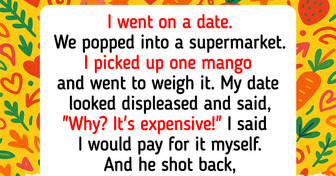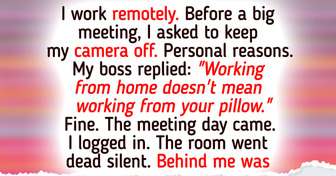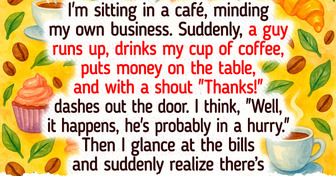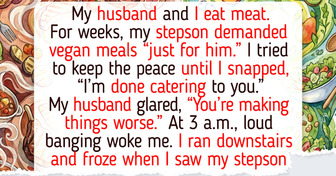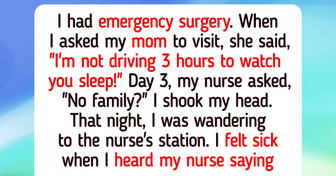I Refused to Talk to My Parents After They Chose My Ex-Wife Over Me

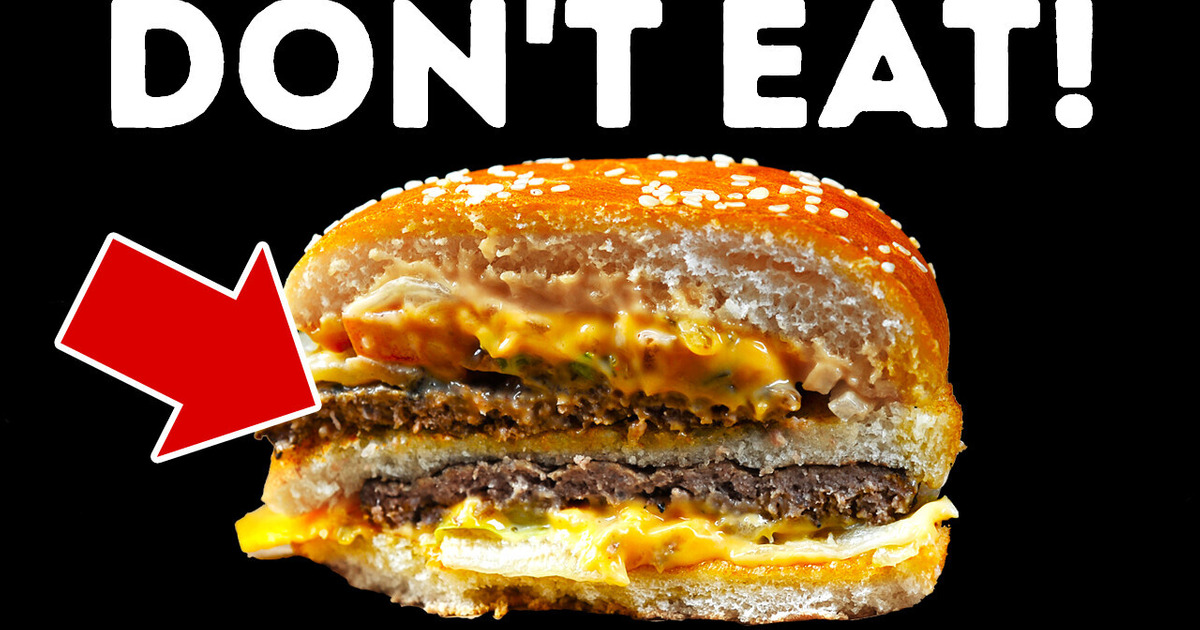
Always choose wisely when ordering meat at a restaurant. Especially when it comes to the ground meat most of us have in burgers. Why? When the piece is ground to reach the desired consistency, harmful elements from the surface of the meat can get inside. And it can potentially render the dish unsafe to eat.
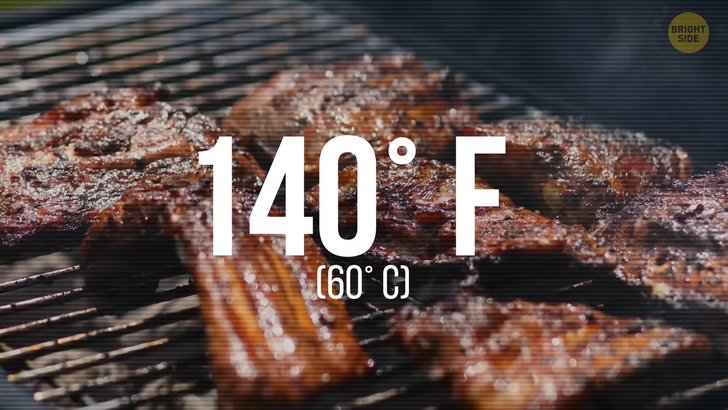
If the burger is ordered more on the rare side, it hasn’t been exposed to heat enough to get rid of any unwanted bacteria or viruses. Rare stakes, however, are a bit safer to eat. Once the outer layer of the meat is seared in high heat, it should be clear and safe. The same rules apply even if you’re cooking at home. Specialists recommend that whole cuts of meat should reach a minimum internal temperature of 140˚F before they are ready to serve. Fish needs to be heated to 145 degrees, while ground meats need a minimum of 160˚. Poultry or pre-cooked meats, like hotdogs, need to get heated to at least 165˚ to be on the safe side.
Next time you order something to drink at a restaurant, better stay away from garnishes. Most drinks these days come with a slice of lemon or lime, while others come with strawberries or even olives. But not all of them are safe to eat. That’s because bartenders don’t always have the same sanitary rules and discipline as people working in the kitchen. They might sometimes forget to store fruit correctly before using them, while some may even leave slices of lemon on the bar surface for a long period of time. Not to mention that some of them work under high-pressure conditions and may sometimes forget to wash their hands altogether. Just stick to the drink itself, and you’ll be safe.
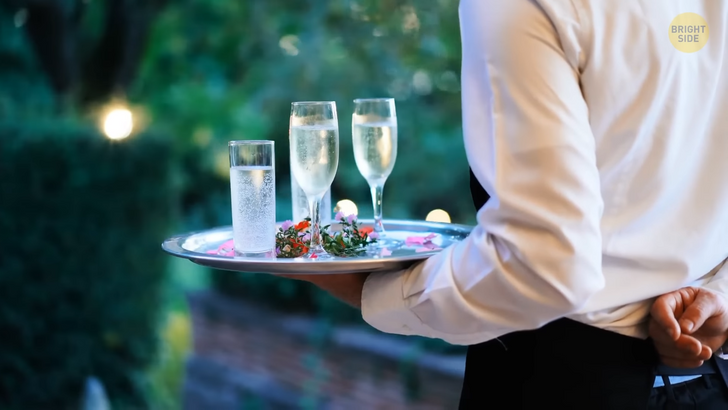
The same goes for tap water. If you’re at a restaurant, you’ll be inclined to indulge in the restaurant’s tap water since it is almost always on the house. Best to stick to the bottled one, as it’s free from any potential contaminants, like chlorine or herbicides. It’s a bit more expensive, but it will keep you away from visiting your doctor.
The hotel you’re staying at on vacation most likely has a buffet. Might want to skip this one too. For starters, you can’t always tell for how long a piece of food has been staying out. More so, not all people enjoying the buffet really obey the rules: they don’t all use forks and spoons to place the food on their plates. And some of them may even be ill — it can be anything, from a cold to the flu. If you don’t want to skip the buffet, though, you might want to go for the one that features a food warmer.
Also, try to be on the lookout for what sorts of food should be warm and what should be cold. Slices of cheese, for example, shouldn’t reach room temperature. At the same time, soups or pieces of cooked meat should always be eaten hot.
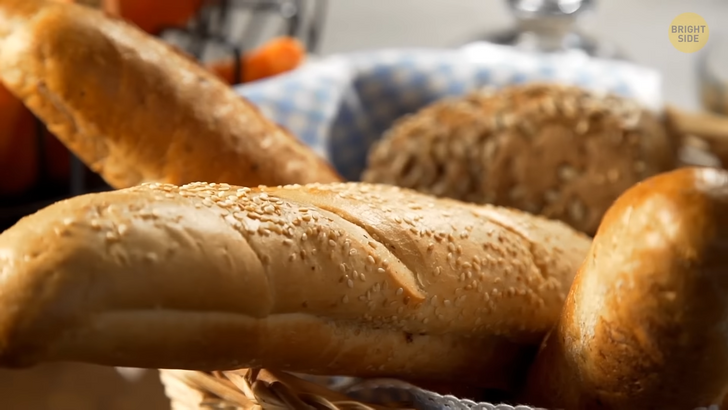
Going out for dinner with friends and planning on sharing your meals? Skip the breadbasket; you’ll thank me later. Too much bread can be bad for your diet. Plus, not only does it have empty calories, but breadbaskets are also known to travel from table to table. That’s right, those slices of bread might not have been specifically cut for you and your friends. They might just be leftovers from the previous party at the table. The same goes for bar snacks. There’s no way to tell how many people have touched the popcorn or peanuts before you or how long they’ve been sitting out before they were served to you.
Try not to order fish on Mondays, as appetizing as it may look. That’s because some chefs claim that the Monday Fish special may actually be a three-day-old filet. Most seafood markets aren’t open during the weekend. So you can’t always be sure that the fish you’re being served on a Monday is fresh.
If your local burger house always has a bottle of ketchup on the table, try not to add it to your fries. Some servers say that if two bottles of ketchup are half empty, they’ll sometimes blend them together. There’s no way to keep track of the expiration date or how long the bottle has been sitting on the table. Not only is it harmful to your health, but it might also ruin the taste of an otherwise good dish.
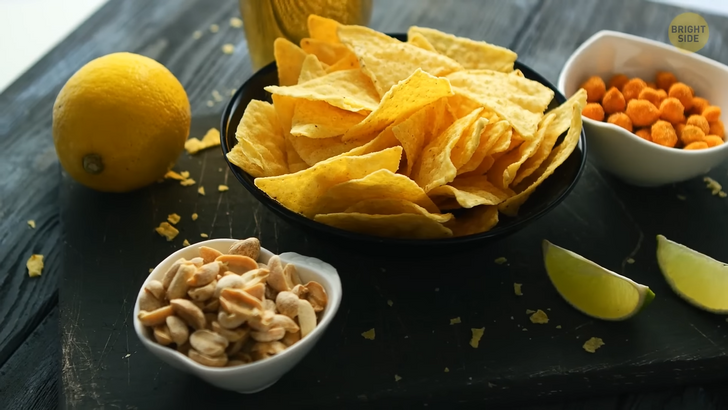
Unlimited appetizers aren’t your friend either. Sure, there’s nothing wrong with indulging for a bit. But the problem is most restaurants provide an unlimited supply of these snacks. By the time you’re served the first course, you might already be full. To make sure you’re not eating too much, you might want to skip those peanuts or chips next time.
Ordering a salad as an entrée might seem like a good idea too. But these days, salads may not be the healthiest option. Most of them are filled with deep-fried pieces of food or have a lot of toppings, like sauces or nuts. That little bowl of salad may end up having more calories than the main course itself. So make sure you ask the server about all the ingredients and quantities before ordering.
If you’re not able to finish your meal and plan to ask for the rest of it to be put in a take-out box, make sure you head straight home after dinner. If the box remains sitting outside at room temperature for too long, the food may end up spoiled. Not to mention that the taste will be completely ruined. So if you plan on going shopping or seeing a movie after lunch, you might want to give up on that take-out.
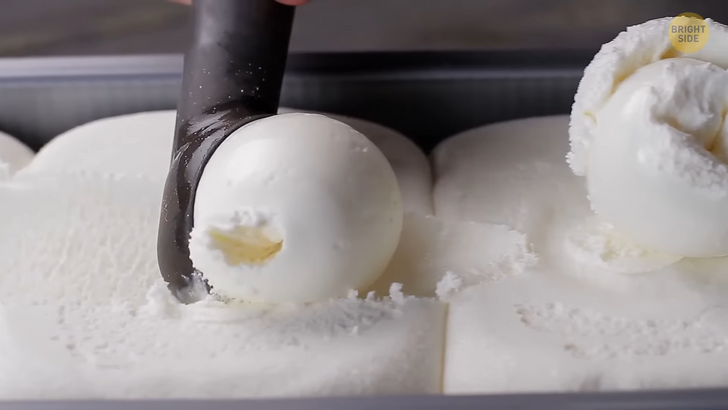
The second cheapest beverage on the menu at your local restaurant may keep a little secret. Sure, you may be inclined to order it if you don’t want to look cheap. But for most restaurants, the second cheapest option may be the one they pay the least for. Best if you go with the house option; it usually has the best value for money.
Both high-end and low-end restaurants can provide you with some extra ice in your drink if you ask for it. However, it may not be the safest thing to do, as ice machines are not always properly cleaned. Some waiters and restaurant staff have even admitted to seeing mold or dust accumulated around the ice box. To be on the safe side, just ask for a freshly refrigerated beverage. It will most likely be sealed. And most restaurants open soda bottles right in front of you, so you’ll know it hasn’t been contaminated.
Having ice cream for dessert sounds like the lowest calorie option, but there’s a catch. Most restaurants charge you way too much for a simple cup of ice cream. Why pay for it at the restaurant when you can pick up a tub from your local supermarket on your way home? If the specific restaurant doesn’t offer its in-house made ice cream, try choosing something else or skip dessert altogether.
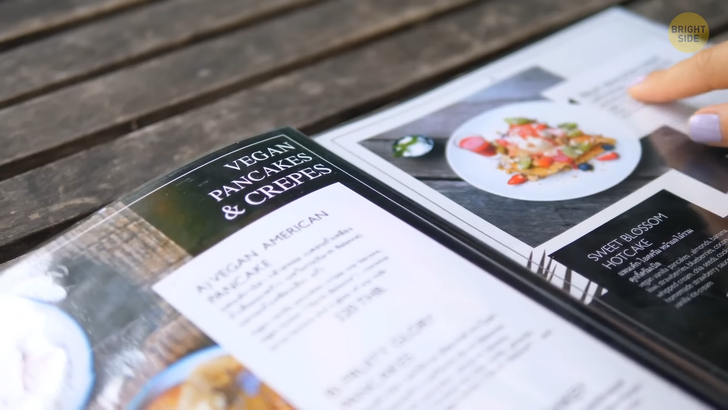
We’re all excited to go out for dinner on a special occasion, but it’s best if you skip national holidays. On such days, the kitchen is really crowded since the staff needs to bring out plate after plate. This means they’ll have less attention to detail because of the amount of pressure they’re under. If you do really want to celebrate a specific holiday, pick the day before or after. Or even the next weekend. But if the restaurant has been closed for the holidays, don’t be so fast to book a table immediately after it opens again. You might be served food that’s been left in storage for quite some time. Holidays may also be a nice occasion to polish your home cooking skills.
You might also want to skip on some items on the menu if the restaurant doesn’t specialize in them. Let’s say you want to order steak at a seafood-themed restaurant. That specific piece of meat might have been in storage for quite some time. Try to stick to the dishes that are more popular on the menu.

